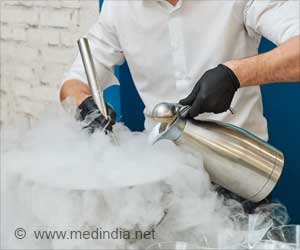- Polyuria-polydipsia syndrome, linked to fluid habits or hormone deficiency, requires accurate diagnosis
- Intense salt infusion test and arginine infusion test provide reliable distinction
- Proper diagnosis achieved for over 95% with salt infusion, while arginine infusion yielded 75%
What is Polyuria-Polydipsia Syndrome?
In most situations, excessive fluid consumption, also known as polyuria-polydipsia syndrome, develops as a result of habit or is associated with a psychological disorder. However, in rare situations, it might be caused by a lack of vasopressin. The pituitary gland secretes this hormone, which regulates the body's water and salt content. People with vasopressin deficiency are unable to concentrate their urine, causing them to lose a substantial amount of fluid and feel extremely thirsty. It is critical to distinguish between a "harmless" kind of excessive fluid intake and vasopressin deficiency: in the first situation, persons affected undergo behavioral therapy to assist them in progressively lowering their fluid intake. People who are vasopressin deficient, on the other hand, are administered the hormone vasopressin. If a patient is given vasopressin in error, it might cause water intoxication, which can be fatal.Intense Salt Infusion Test to Distinguish Between Excessive Fluid Intake and Vasopressin Deficiency
Over the last few years, the two research group heads, Professor Mirjam Christ-Crain and PD Dr. Julie Refardt have collaborated with several national and international centres to develop testing procedures to discriminate between these two illnesses. They discovered a test that increases vasopressin release by a very intense salt infusion. “However, due to the resulting increase in salt concentration, constant monitoring is necessary, including half-hourly measurements of the salt levels in the patients’ blood,” explains Professor Christ-Crain.It is critical to distinguish between a "harmless" kind of excessive fluid intake and vasopressin deficiency: in the first situation, persons affected undergo behavioral therapy to assist them in progressively lowering their fluid intake. People who are vasopressin deficient, on the other hand, are administered the hormone vasopressin. If a patient is given vasopressin in error, it might cause water intoxication, which can be fatal.
Over the last few years, the two research group heads, Professor Mirjam Christ-Crain and PD Dr. Julie Refardt have collaborated with several national and international centers to develop testing procedures to discriminate between these two illnesses. They discovered a test that increases vasopressin release by a very intense salt infusion.
Arginine Infusion Promotes Vasopressin Release
An infusion of arginine is used in a simpler and more readily tolerated test. Arginine, an important amino acid, promotes vasopressin release and has been found to provide a trustworthy diagnosis.Christ-Crain and Refardt conducted a direct comparison of the two tests with an international team and reported their findings in the New England Journal of Medicine (1). The 158-person study found that the salt infusion resulted in a proper diagnosis for more than 95 percent of patients. The arginine infusion test, on the other hand, only provided a proper diagnosis in just under 75% of patients.
Reference:
- Arginine or Hypertonic Saline-Stimulated Copeptin to Diagnose AVP Deficiency - (https://pubmed.ncbi.nlm.nih.gov/37966286/)
Source-Medindia















